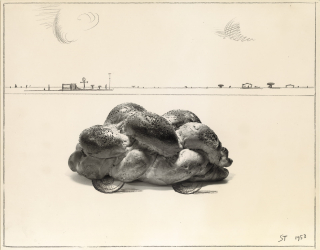
Sue Halpern in the New York Review of Books:
For generations of Americans especially, and young Americans even more, driving and the open road promised a kind of freedom: the ability to light out for the territory, even if the territory was only the mall one town over. Autonomous vehicles also come with the promise of freedom, the freedom of getting places without having to pay attention to the open (or, more likely, clogged) road, and with it, the freedom to sleep, work, read e-mail, text, play, have sex, drink a beer, watch a movie, or do nothing at all. In the words of the Morgan Stanley analysts, whose enthusiasm is matched by advocates in Silicon Valley and cheerleaders in Detroit, driverless vehicles will deliver us to a “utopian society.”
That utopia looks something like this: fleets of autonomous vehicles—call them taxi bots—owned by companies like Uber and Google, able to be deployed on demand, that will eliminate, for the most part, the need for private car ownership. (Currently, most privately owned cars sit idle for most of the day, simply taking up space and depreciating in value.) Fewer privately owned vehicles will result in fewer cars on the road overall. With fewer cars will come fewer traffic jams and fewer accidents. Fewer accidents will enable cars to be made from lighter materials, saving on fuel. They will be smaller, too, since cars will no longer need to be armored against one another.
With less private car ownership, individuals will be freed of car payments, fuel and maintenance costs, and insurance premiums. Riders will have more disposable income and less debt. The built environment will improve as well, as road signs are eliminated—smart cars always know where they are and where they are going—and parking spaces, having become obsolete, are converted into green spaces. And if this weren’t utopian enough, the Morgan Stanley analysts estimate that switching to full vehicle autonomy will save the United States economy alone $1.3 trillion a year.
There are many assumptions embedded in this scenario, the most obvious being that people will be willing to give up private car ownership and ride in shared, driverless vehicles. (Depending on the situation, sharing either means using cars owned by fleet companies in place of privately owned vehicles, or shuttling in cars owned by fleet companies with other riders, most likely strangers going to proximate destinations.) There is no way to know yet if this will happen. In a survey by the Insurance Information Institute last May, 55 percent of respondents said they would not ride in an autonomous vehicle. But that could change as self-driving cars become more commonplace, and as today’s young adults, who have been slower to get drivers’ licenses and own cars than their parents’ generation, and who have been early adopters of car-sharing businesses like Zipcar and Uber, become the dominant demographic.
More here.
Ryan Gilbey at The New Statesman:
